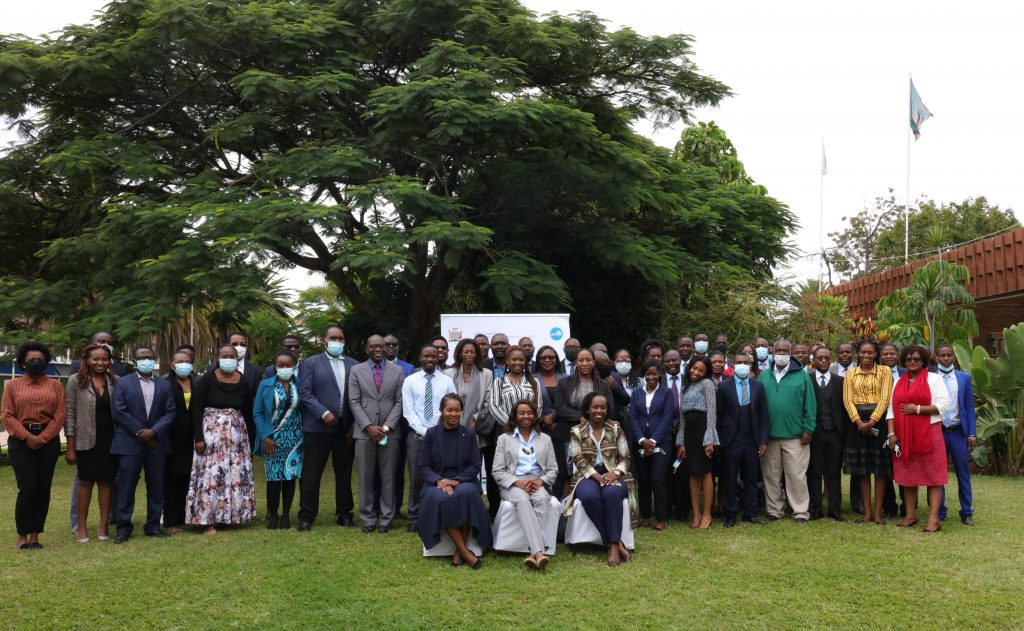
The governments of Zambia and Zimbabwe with support from COMESA Secretariat, the United Nations Economic for Africa (UNECA) and the African Development Bank (AfDB) are working on modalities to establish a Joint Agro Industrial Park.
The proposed project is expected to increase the availability of industrial goods and services for the bilateral market and expand intra- regional trade in manufacturing. It will help develop industrialists that would acquire ownership and management of the industries, develop appropriate skills and knowledge in industries, strengthen collaboration and bolster networking among policy makers, regulators, industry and academia.
Towards this end, a Memorandum of Understanding (MoU) was signed by the two countries in March 2021, which marked the launch the first ever joint industrialization cooperation programme between the two.
On March 30, 2022, officials from the Zambian government and partners met in Lusaka and Livingstone cities to sensitize stakeholders, comprising of the private sector, academia, research institutions, civil society, COMESA Secretariat, UNECA, AfDB and the United Nations Industrial Development Organisation (UNIDO) on the progress. A similar workshop was held in Zimbabwe in 2021.
The industrial park will be partially located on each side of the border. It will prioritise processing of value chains such as cotton, maize, wheat, rice, soya beans, sugar, livestock (leather and dairy) and horticulture. These sectors provide extensive linkages with the manufacturing sector particularly in the processed food sub-sector which is key in promoting industrial activities.
The project is aligned with the COMESA Industrial Strategy, which Member States have adopted to create a globally competitive environment-friendly, diversified industrial sector which is based on innovation and manufacturing as tools for transforming regional resources into sustainable wealth and prosperity for all.
The meeting encouraged for the formation of special economic zones (SEZs) as they have a potential to be used as platforms for regional and sub-regional markets and inputs supply.
Dr Kipyego Cheluget, COMESA’s Assistant Secretary General for Programmes informed the meeting that COMESA has provided the framework of managing special economic zones and industrial parks to make them sustainable, inclusive and competitive.
“I commend the governments of Zambia and Zimbabwe for the political commitment to support the implementation of this programme,” he said in a statement represented by the Director of Industry and Agriculture, Mrs Providence Mavubi.
The meeting was also addressed by the Zambia Director of Foreign Trade, Mrs Bessie representing the Permanent Secretary, Mrs Chawe Chuulu and the UNECA Southern Africa Sub- Regional Office Director, Ms. Eunice Kamwendo.

